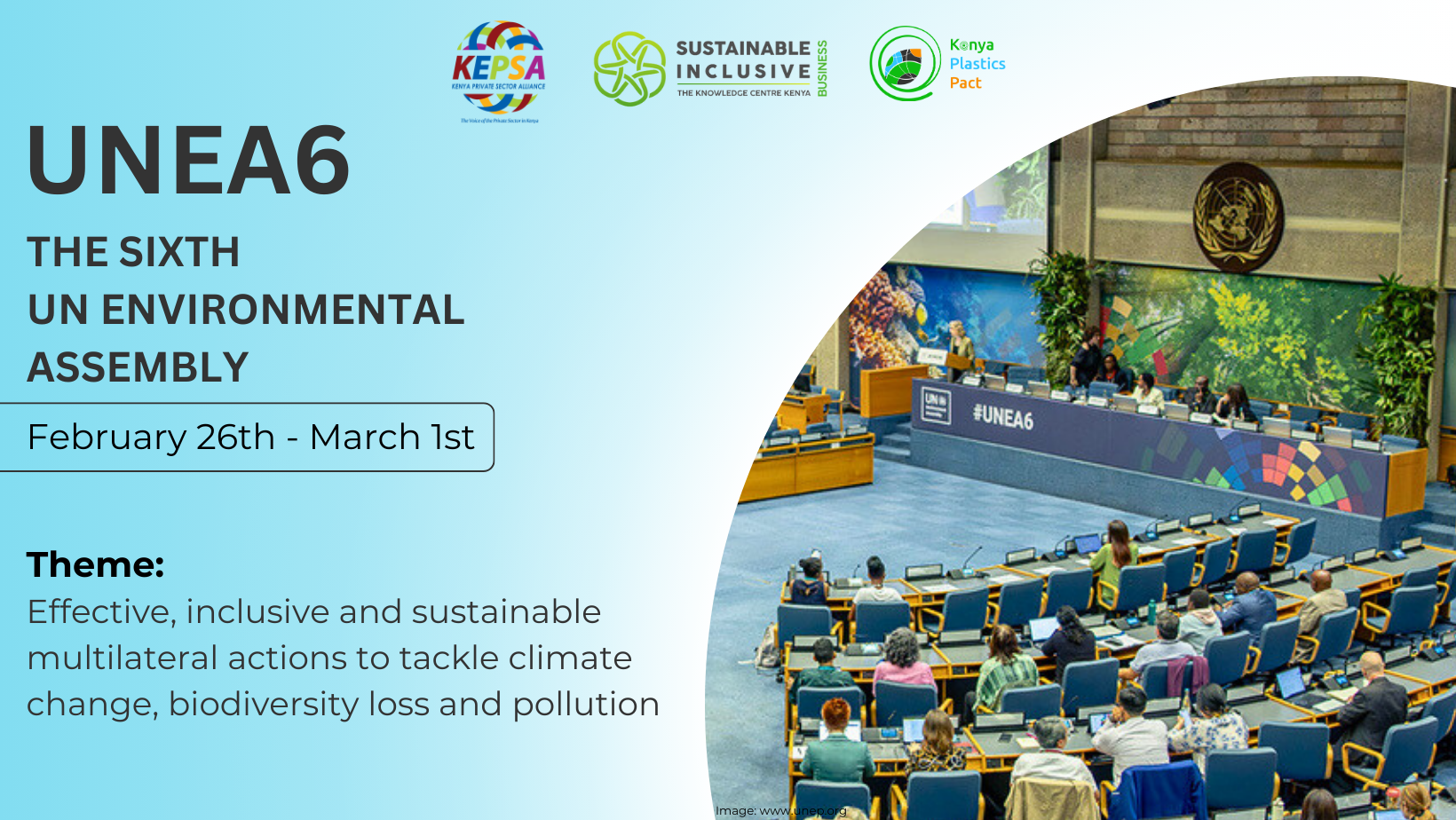The United Nations Environment Assembly’s sixth session (UNEA-6) can be summarized as a platform for exploring new ideas and making bold decisions to help us chart an ambitious path towards collective environmental action.
Taking place from February 26th to March 1st at the United Nations Environmental Programme (UNEP) Headquarters in Nairobi, this year’s UNEA6 session will focus on exploring the potential of multilateralism in addressing the triple planetary crisis of climate change, loss of Biodiversity, pollution, and waste.
This biannual event will allow world governments, civil society groups, the scientific community, and the private sector to shape global environmental policies. In attendance, there are expected to be over 3000 delegates, including over 70 ministers, intergovernmental organizations, and the broader UN system, among others.
Through the Kenya Private Sector Alliance (KEPSA), Sustainable Inclusive Business Kenya, will be participating in the UN Science-Policy-Business Forum on the Environment. The session will be convened on February 27th covering the importance of placing sustainability at the forefront of efforts to shape our shared future.
KEPSA CEO, Ms. Carole Kariuki, will represent Kenya’s Private Sector to make the case for the one thing that needs to happen to put the world on track to meet equitable and just environmental goals. This will be an opportunity to showcase how private sector-led innovations can spearhead environmental justice, as well as Kenya’s private sector’s efforts in realizing the sustainable development goals and values for sustainable growth.
Furthermore, the special session will explore strategies for responsible mining in an increasingly resource-hungry world, sustainable fashion, tracking financial flows to nature-based solutions, the argument for high-integrity carbon markets, and how we can utilize integrated early warning systems for the planet.
On the 29th, KEPSA will also participate in the “Circular Economy and Extended Producer Responsibilities (EPR) in Addressing Pollution Control” side event organized by the National Environment Management Authority (NEMA). The discussion is based on the Sustainable Waste Management Act 2022 Section 13(1), which requires “every producer to bear extended producer obligations to reduce pollution and environmental impacts of the products they introduce to the Kenyan market and waste arising therefrom.”
Sustainable Inclusive Business, through the Kenya Plastics Pact, has been spearheading EPR implementation among businesses, pushing for upstream solutions like re-designing packaging products to be more reusable and recyclable. Ms. Emily Waita, the KEPSA Environment, Water and Natural Resources Sector Board, will represent in a panel addressing the level of compliance among businesses so far. She will also highlight good private sector practices that have successfully promoted a circular economy in Kenya and the role KEPSA has been playing in promoting the same.
The UNEA6 sessions add to our thematic areas of circular economy, climate change, empowering people and communities, and redefining business values, while contributing to a more sustainable, waste-less, and resilient environment. We look forward to the outcomes and the transition from dialogue to action in this year’s UNEA6.
By Absalom Mulama, Communications Assistant at Sustainable Inclusive Business.


